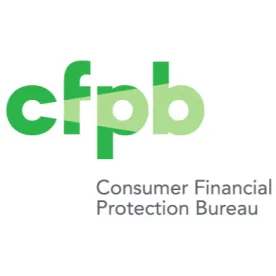The CFPB has filed an amicus brief in Bender v. Elmore & Throop, P.C., an appeal before the Fourth Circuit involving the application of the FDCPA’s one-year statute of limitations. The brief supports the position of the plaintiff-appellant that the one-year period runs separately for each discrete FDCPA violation. It represents the first CFPB amicus brief filed under Director Kraninger’s leadership.
In February 2016, a debt collection law firm retained by the Benders’ homeowners’ association sent a letter to the Benders stating that they owed unpaid assessment charges plus additional amounts for fees, costs, and attorneys’ fees. After the Benders disputed the outstanding balance and provided proof of timely payment, the law firm acknowledged receipt of the payment but claimed a balance was still owed. The Benders wrote to the law firm in May 2016 asking them to cease communications about the alleged debt but the law firm continued collection efforts, sending demand letters in February and March 2017. In January 2018, during an unrelated phone conversation about a homeowners’ association meeting, the law firm raised the alleged debt and warned that a lien had been placed on the Benders’ home. In February 2018, the law firm sent a letter purporting to verify the debt and demanding payment.
The Benders filed a lawsuit in April 2018 alleging that the law firm had violated 15 USC section 1692c(c) by continuing to contact them about the debt via the January 2018 phone call and February 2018 letter after they had properly requested that the law firm cease such communications. They also alleged that the February 2018 letter violated the FDCPA prohibitions on deceptive and unfair practices in 15 USC sections 1692e and 1692f because it attempted to collect amounts that were not owed and that were not authorized by law or the agreement creating the debt.
The district court granted the law firm’s motion to dismiss on the basis that the lawsuit was filed beyond the FDCPA’s one-year SOL. The FDCPA authorizes private enforcement actions “within one year from the date on which the violation occurs.” The district court interpreted the provision to mean that the one-year period begins from the date of the first violation, and is not restarted by subsequent violations. Accordingly, the district court held that the SOL for the Benders section 1692(c) claim expired no later than March 2018, or one year after the law firm sent the March 2017 letter in disregard of the Benders’ cease communications request. It held that the SOL for the Benders’ sections 1692e and 1692f claims expired in February 2017, or one year after the law firm’s initial demand letter. The district court did not view the January 2018 phone conversation or February 2018 letter as independent FDCPA violations but instead viewed them as “merely subsequent iterations of the same allegedly unlawful debt collection practice initiated at a date preceding the actionable window.”
In its amicus brief, the CFPB argues that the FDCPA’s one-year SOL “means what it says: A plaintiff may sue to challenge violations that occurred in the previous year. There is no exception for violations that are similar to earlier time-barred limitations.” The CFPB asserts that the district court’s interpretation “is inconsistent with the statutory text, the great majority of case law, and Congress’s express purpose in enacting the FDCPA.” With regard to case law, the CFPB argues that all four circuit courts that have considered this question have held that the FDCPA’s SOL runs separately for each discrete violation. (The CFPB cites cases from the Sixth, Eighth, Ninth, and Tenth Circuits.) With regard to the congressional purpose, the CFPB asserts that the district court’s reading would “thwart the purposes of the Act [to eliminate abusive debt collection practices] because it would ‘immunize debt collectors from later wrongdoing.’”
The CFPB argues that because the defendants have alleged discrete violations of the FDCPA that occurred in January and February 2018 and filed their lawsuit in April 2018, their lawsuit was timely and the judgment of the district court should be reversed.



 />i
/>i

